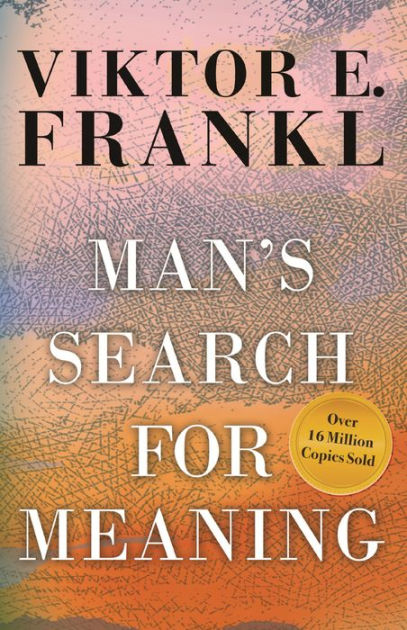
I found the first two-third’s of this quite worthwhile; last part is too much psychologizing for my taste1.
I’d say the TL;DR is that at a surface, practical level attitude is everything; but the true takeaway is from page 67, which, to me, is very (unintentionally) Catholic:
If there is a meaning in life at all, then there must be a meaning in suffering. Suffering is an ineradicable part of life, even as fate and death. Without suffering and death human life cannot be complete.
A deeper insight comes from Frankl’s section on Logodrama:
The question was whether an ape which was being used to develop poliomyelitis serum, and for this reason punctured again and again, would ever be able to grasp the meaning of its suffering. Unanimously, the group replied that of course it would not; with its limited intelligence, it could not enter into the world of man, i.e., the only world in which the meaning of its suffering would be understandable. Then I pushed forward with the following question: “And what about man? Are you sure that the human world is a terminal point in the evolution of the cosmos? Is it not conceivable that there is still another dimension, a world beyond man’s world; a world in which the question of an ultimate meaning of human suffering would find an answer?” (p.118)
Frankl uses a psychological lens, but to me this is theodicy (i.e., the Problem of Evil). The Book of Job gets into this and the answer is as he suggests: who are we to understand the meaning of our suffering or finally anything about God’s designs? It’s a form of hubris to assign no meaning to some suffering or to call it “dumb suffering”. How could you possibly know?
There may be some redeeming aspects of “logotherapy”; e.g., that it…
‘may help counteract certain unhealthy trends in the present-day culture of the United States, where the incurable sufferer is given very little opportunity to be proud of his suffering and to consider it enobling rather than degrading’ so that ‘he is not only unhappy, but also ashamed of being unhappy.’ (p.130)
And somewhat interesting is this concept of gradual reacclimatization after an intensely stressful or traumatic period:
We have to consider that a man who has been under such enormous mental pressure for such a long time is naturally in some danger after his liberation, especially since the pressure was released quite suddenly. This danger (in the sense of psychological hygiene) is the psychological counterpart of the bends. Just as the physical health of the caisson worker would be endangered if he left his diver’s chamber suddenly (where he is under enormous atmospheric pressure), so the man who has suddenly been liberated from mental pressure can suffer damage to his mora land spiritual health. (p.90)
Finally, there’s an interesting meta meaning in the Afterword: that through the writing of this book, Frankl helped “restore meaning to his own life”.
— ᴘ. ᴍ. ʙ.
I’m with Thomas Merton (from Seven Storey Mountain) on psychoanalysis: “Day after day I read Freud, thinking myself to be very enlightened and scientific when, as a matter of fact, I was about as scientific as an old woman secretly poring over books about occultism, trying to tell her own fortune, and learning how to dope out the future from the lines in the palm of her hand. I don’t know if I ever got very close to needing a padded cell: but if I ever had gone crazy, I think psychoanalysis would have been the one thing chiefly responsible for it.” ↩
← back to books | tweet | cast